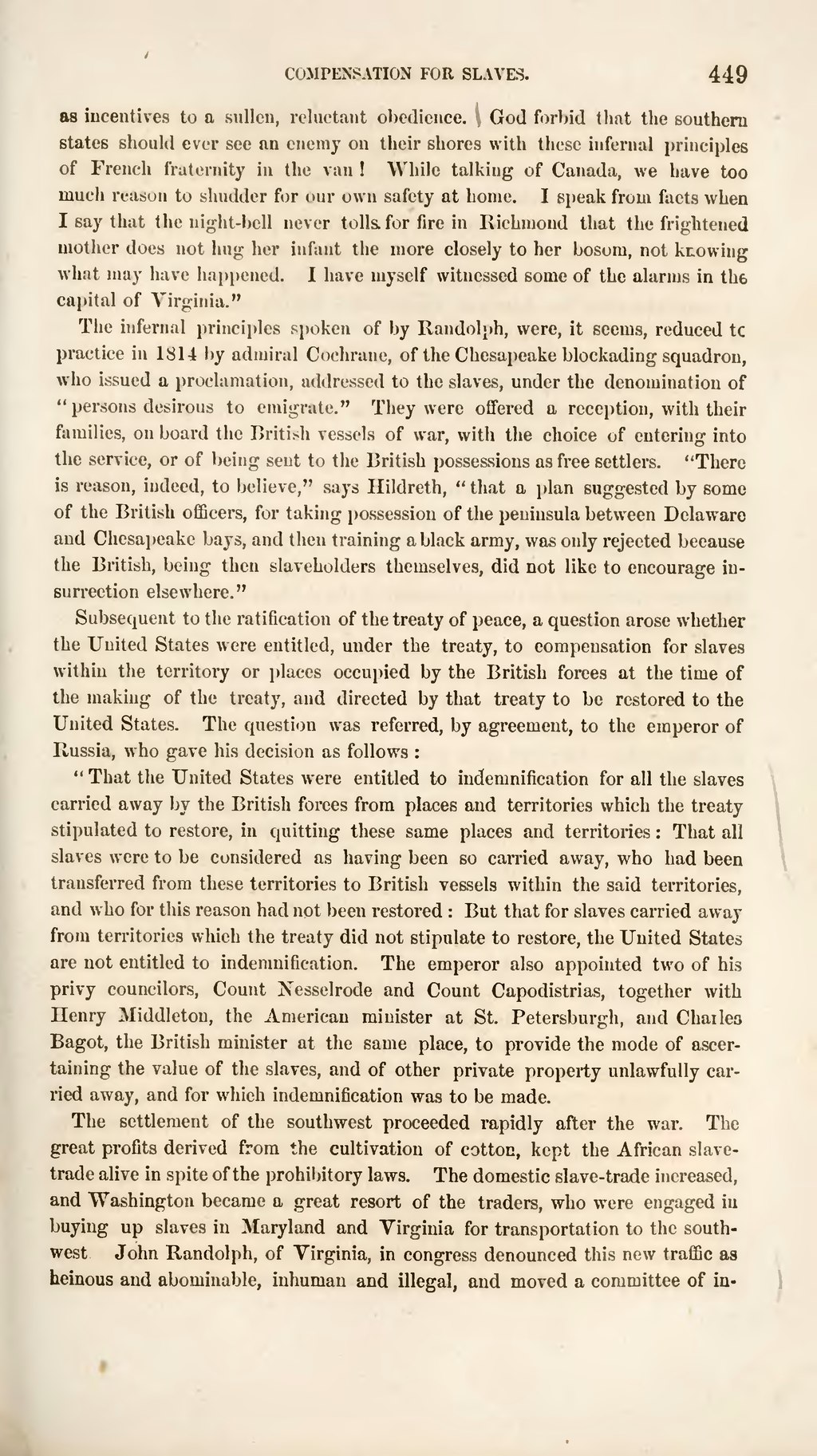as incentives to a sullen, reluctant obedience. God forbid that the southern states should ever see an enemy on their shores with these infernal principles of French fraternity in the van! While talking of Canada, we have too much reason to shudder for our own safety at home. I speak from facts when I say that the night-bell never tolls, for fire in Richmond that the frightened mother does not hug her infant the more closely to her bosom, not knowing what may have happened. I have myself witnessed some of the alarms in the capital of Virginia."
The infernal principles spoken of by Randolph, were, it seems, reduced tc practice in 1814 by admiral Cochrane, of the Chesapeake blockading squadron, who issued a proclamation, addressed to the slaves, under the denomination of "persons desirous to emigrate." They were offered a reception, with their families, on board the British vessels of war, with the choice of entering into the service, or of being sent to the British possessions as free settlers. "There is reason, indeed, to believe," says Hildreth, "that a plan suggested by some of the British officers, for taking possession of the peninsula between Delaware and Chesapeake bays, and then training a black army, was only rejected because the British, being then slaveholders themselves, did not like to encourage insurrection elsewhere."
Subsecpient to the ratification of the treaty of peace, a question arose whether the United States were entitled, under the treaty, to compensation for slaves within the territory or places occupied by the British forces at the time of the making of the treaty, and directed by that treaty to be restored to the United States. The question was referred, by agreement, to the emperor of Russia, who gave his decision as follows:
"That the United States were entitled to indemnification for all the slaves carried away by the British forces from places and territories which the treaty stipulated to restore, in quitting these same places and territories: That all slaves were to be considered as having been so carried away, who had been transferred from these territories to British vessels within the said territories, and who for this reason had not been restored: But that for slaves carried away from territories which the treaty did not stipulate to restore, the United States are not entitled to indemnification. The emperor also appointed two of his privy councilors, Count Nesselrode and Count Capodistrias, together with Henry Middleton, the American minister at St. Petersburgh, and Chailea Bagot, the British minister at the same place, to provide the mode of ascertaining the value of the slaves, and of other private property unlawfully carried away, and for which indemnification was to be made.
The settlement of the southwest proceeded rapidly after the war. The great profits derived from the cultivation of cotton, kept the African slave-trade alive in spite of the prohibitory law's. The domestic slave-trade increased, and Washington became a great resort of the traders, who were engaged in buying up slaves in Maryland and Virginia for transportation to the southwest John Randolph, of Virginia, in congress denounced this new traffic as heinous and abominable, inhuman and illegal, and moved a committee of in-
